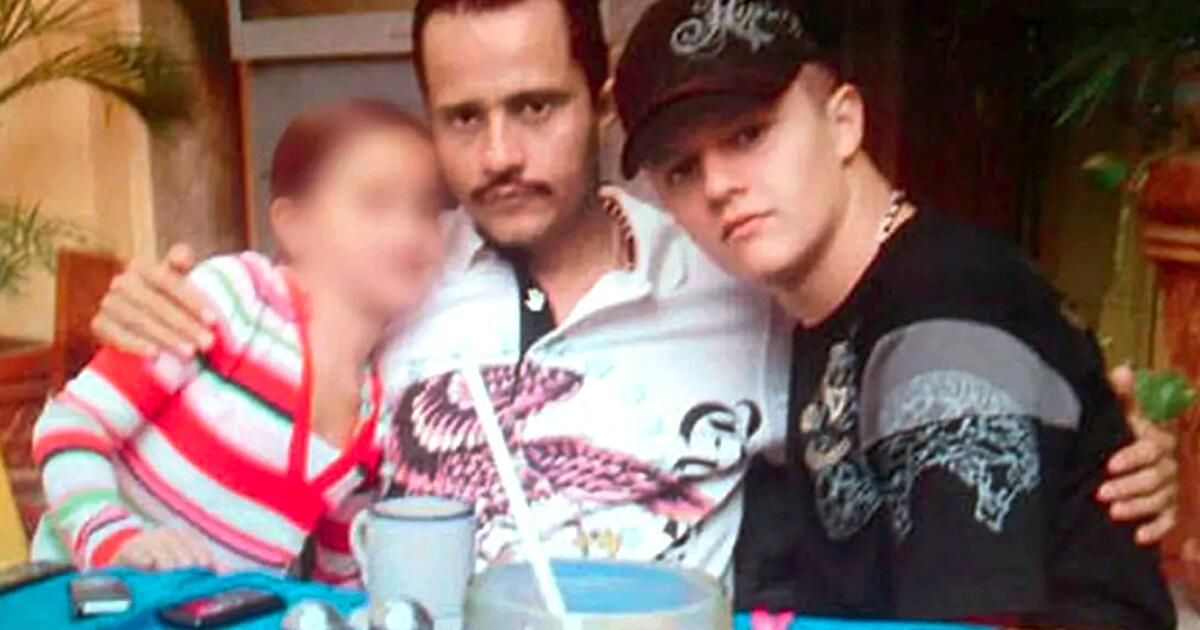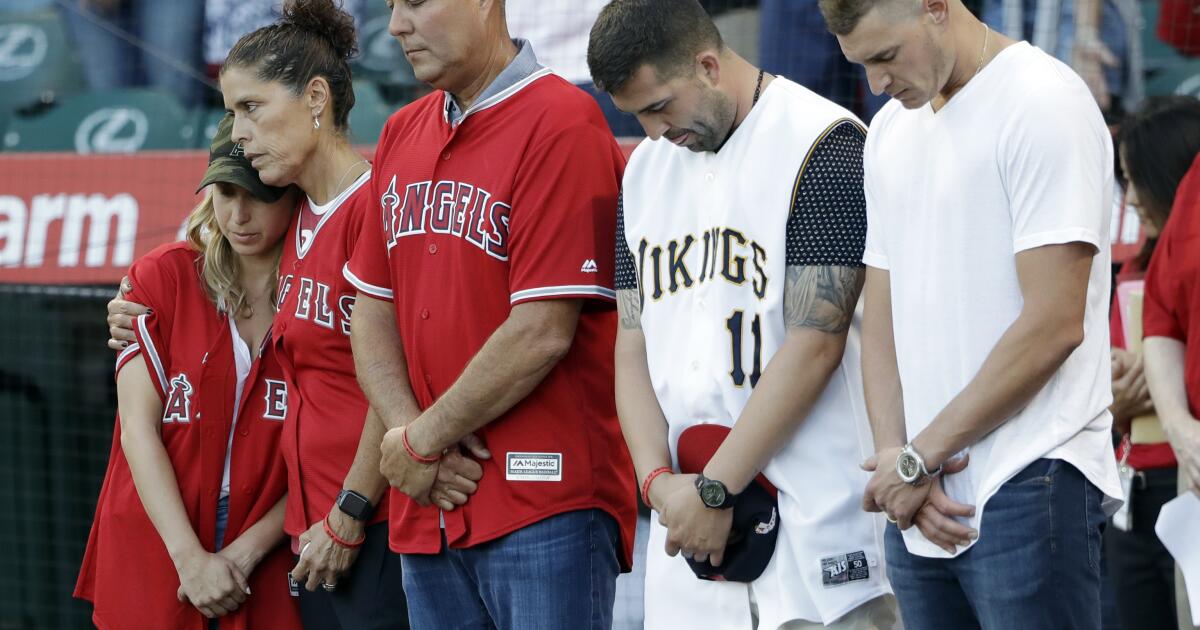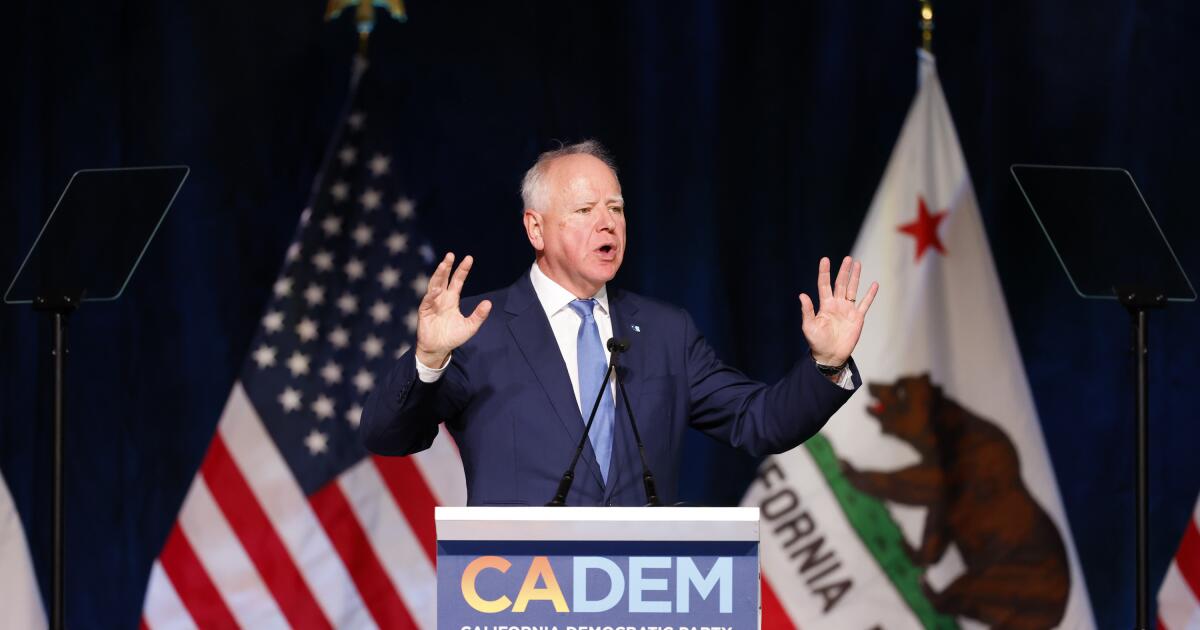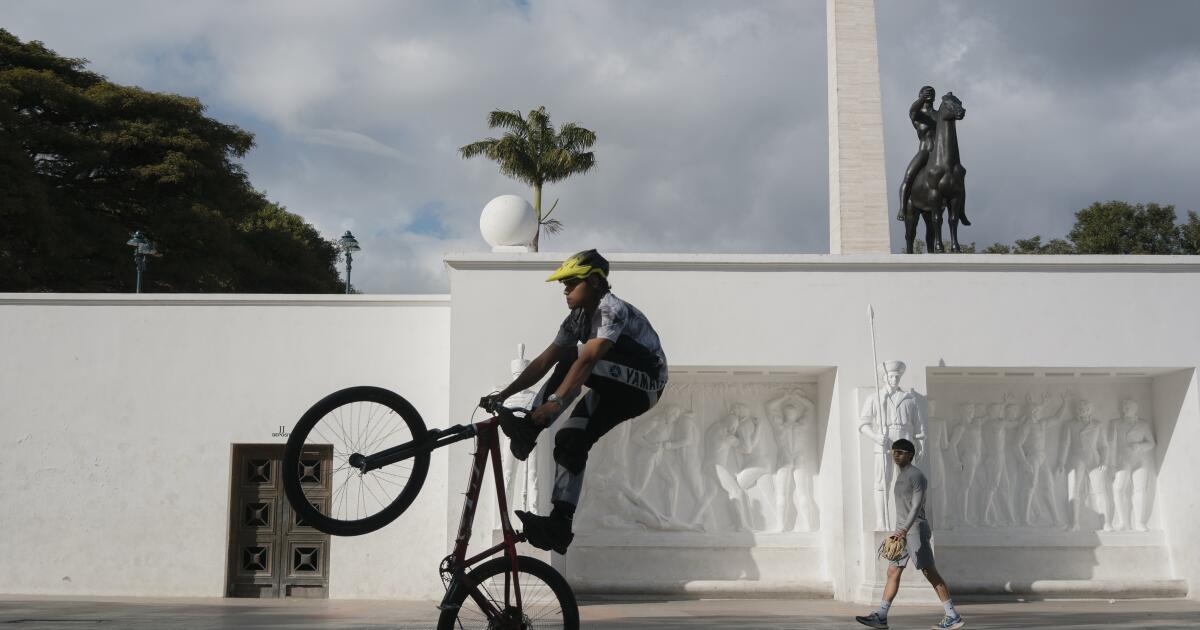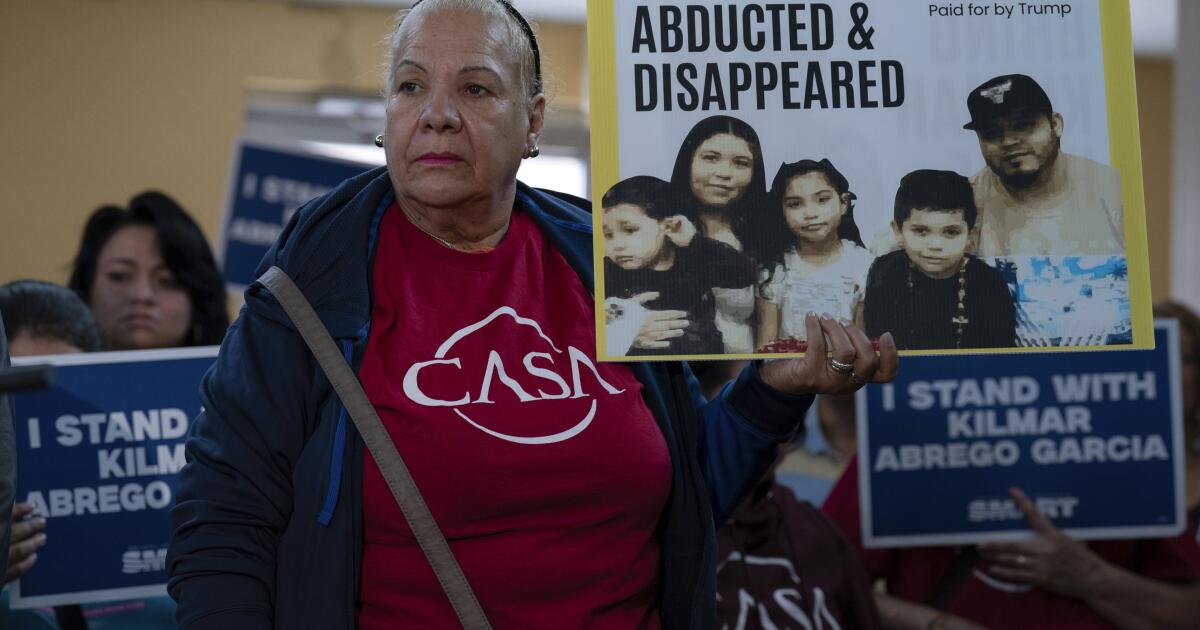The alleged Mexican drug lord known as El Mencho has evaded efforts by U.S. and Mexican authorities to bring him to justice for more than a decade. His son, the alleged heir to one of Mexico's largest criminal empires, has not been so elusive.
Captured by Mexican security forces in 2015 — a month after henchmen allegedly operating under his orders shot down a military helicopter that was pursuing him and his father — he is now on trial in Washington on drug trafficking and weapons charges related to his alleged role in the Jalisco Nueva Generación cartel.
Ruben Oseguera Gonzalez, 34, better known as El Menchito, is part of a generation of “narco juniors” who are learning that the old codes of silence and family loyalty that once protected their parents are increasingly relics of the past. He has faced damning testimony from a string of former cartel members. Even his own uncle is expected to testify against him.
While other sons of other prominent Mexican traffickers have reached plea deals (sometimes involving cooperation against cartel associates), court documents show Oseguera Gonzalez rejected a deal last year. If convicted, he almost certainly faces life in prison.
The case has highlighted a generational gap between baby-boomer cartel bosses and their millennial children.
Parents, in many cases, had nothing to do and worked their way up to form their own cartels. Some of the younger ones have attended private schools and rubbed shoulders with their country's future elites. Now, privileged thirtysomethings are increasingly taking on leadership roles as their parents (or at least those who haven't been killed or captured) approach retirement age.
A photograph used as evidence in the trial of Rubén Oseguera González, alias El Menchito, shows a Mexican military helicopter he allegedly ordered shot down in May 2015 so he and his father, alleged CJNG cartel leader El Mencho, could escape capture.
(United States District Court, District of Columbia)
Children don't have to look far to see that, if they are captured and extradited to the U.S., choosing to go to trial is a high-stakes, all-or-nothing gamble that rarely ends with release.
Exhibit A: Joaquin “El Chapo” Guzman, the longtime leader of the Sinaloa cartel, is currently serving a life sentence in strict solitary confinement at a remote Colorado prison known as the “Alcatraz of the Rockies.” Among the more than a dozen former associates who testified against him were two relatives of his longtime partner, Ismael “El Mayo” Zambada.
Now, five years after El Chapo's conviction, it appears that his two sons are trying by all means to avoid their father's fate.
Mexican authorities say Joaquin Guzman Lopez, 38, and his brother Ovidio, 34, who was extradited to the United States last year, conspired to kidnap Zambada in an effort to receive leniency in their own cases.
Zambada, who recently made his first court appearance in Brooklyn, New York, pleading not guilty to drug charges, said he was “forcibly abducted” on July 25 when Joaquin personally handed him over to U.S. agents at an airport near El Paso, where both men were arrested.
A lawyer for the brothers has denied they are cooperating. Both have pleaded not guilty and remain in custody pending charges in Chicago and Washington for their alleged leadership of a cartel faction called Los Chapitos.
While El Chapo's children await their fate, Oseguera González risks himself before a jury.
In an opening statement last week, Justice Department prosecutor Jonathon Hornok presented seemingly damning evidence, including early testimony from a corrupt police chief who served as a personal bodyguard for El Mencho and others who trafficked drugs for the cartel, the CJNG, as it is known by its Spanish initials.
“They will tell them about the birth of the CJNG, how they saw how the father of the accused created the cartel and how the accused led the cartel as number 2 alongside his father,” Hornok said.
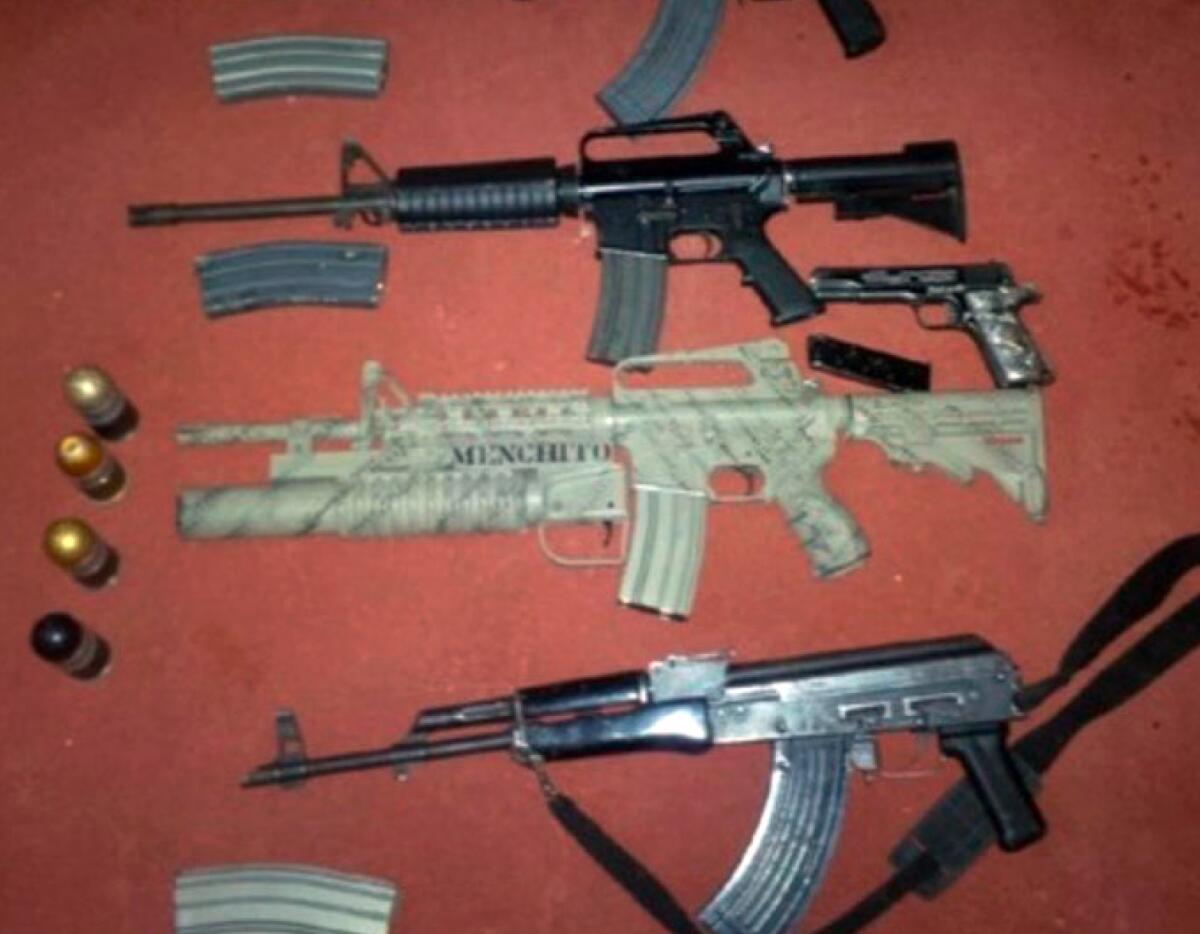
An evidence photo from the trial of Ruben Oseguera Gonzalez shows a rifle equipped with a grenade launcher emblazoned with his nickname, “Menchito.”
(United States District Court, District of Columbia)
Oseguera Gonzalez's attorney responded by telling jurors they should be skeptical of key witnesses “who have made that deal with the government,” an agreement he called “one of the weak points of criminal justice.”
“It’s a wonderful system, as perfect as it gets, but it’s flawed,” said lawyer Jan Ronis.
David Weinstein, a former federal narcotics prosecutor in Miami who has been a regular observer of young drug trafficking cases, compared the wave of betrayals among Mexican cartel members to the erosion of New York's crime families in the 1990s under federal organized crime investigations.
He cited the case of Salvatore “Sammy the Bull” Gravano, an underboss in the Gambino crime family who turned witness for the prosecution, helping to eventually bring murder charges and a life sentence to “Teflon Don” John Gotti.
“There are certain people who just won’t testify, family is closer than anything else: ‘I’m not going to be a snitch and I’m not going to testify,’” Weinstein said. “Others say, ‘It’s not worth it. Even if it’s family, it’s not worth it.’”
Any chance Oseguera Gonzalez could reach a deal appeared to evaporate last year when he backed out of a guilty plea at the last minute after changing lawyers.
Court documents show Oseguera Gonzalez signed documents admitting he ordered more than 100 murders.
The anticipated testimony described in the preliminary documents said several victims were “drowned in a pool.” Witnesses were also expected to say “he personally shot and killed two people: a rival cartel member and a subordinate who disobeyed orders.”
Prosecutors say he oversaw a vast network of methamphetamine labs and allegedly obtained weapons and military training from Russian mercenaries.
After Oseguera Gonzalez called off the deal, telling the judge at a hearing last April, “I just want a second opinion,” prosecutors were barred from using the plea bargain admissions during the trial.
Arturo Hernandez, the defense attorney who took over for Oseguera Gonzalez when he declined to plead guilty, said his client signed the documents without a Spanish interpreter present.
“That was absolutely illegal,” said Hernandez, who is not part of the defense team at trial. He added that he thought the fact that the plea documents were made public before the trial would “poison the jury” and create an appeal problem if Oseguera Gonzalez is found guilty.
Oseguera Gonzalez’s other alleged activities included stealing fuel from pipelines in Mexico, which was resold and used to “pay CJNG hitmen to buy weapons, methamphetamine production equipment and stolen cars” for the cartel, according to a court filing.
Prosecutors have said a witness will testify that Oseguera González boasted of amassing an “arsenal” that included .50-caliber sniper rifles, 40-millimeter automatic grenade launchers and portable rocket launchers. They also allege that he “brokered and authorized the purchase of weapons from a Russian with a military background, who was also providing weapons training to the CJNG.”
Thousands of Blackberry Messenger communications obtained through wiretaps allegedly show Oseguera Gonzalez conducting cartel business under pseudonyms including “Forrest Gump,” “Ice Man” and “Billy the Kid.”
In one message intercepted in October 2013, Oseguera Gonzalez “agreed to release a kidnapped chemist” so he could manufacture oxycodone, a synthetic opioid often pressed into counterfeit prescription pills laced with fentanyl, according to prosecutors.
“I’m going to free him, brother,” the message said. “I’m just going to make a deal with him, so he can work with me.”
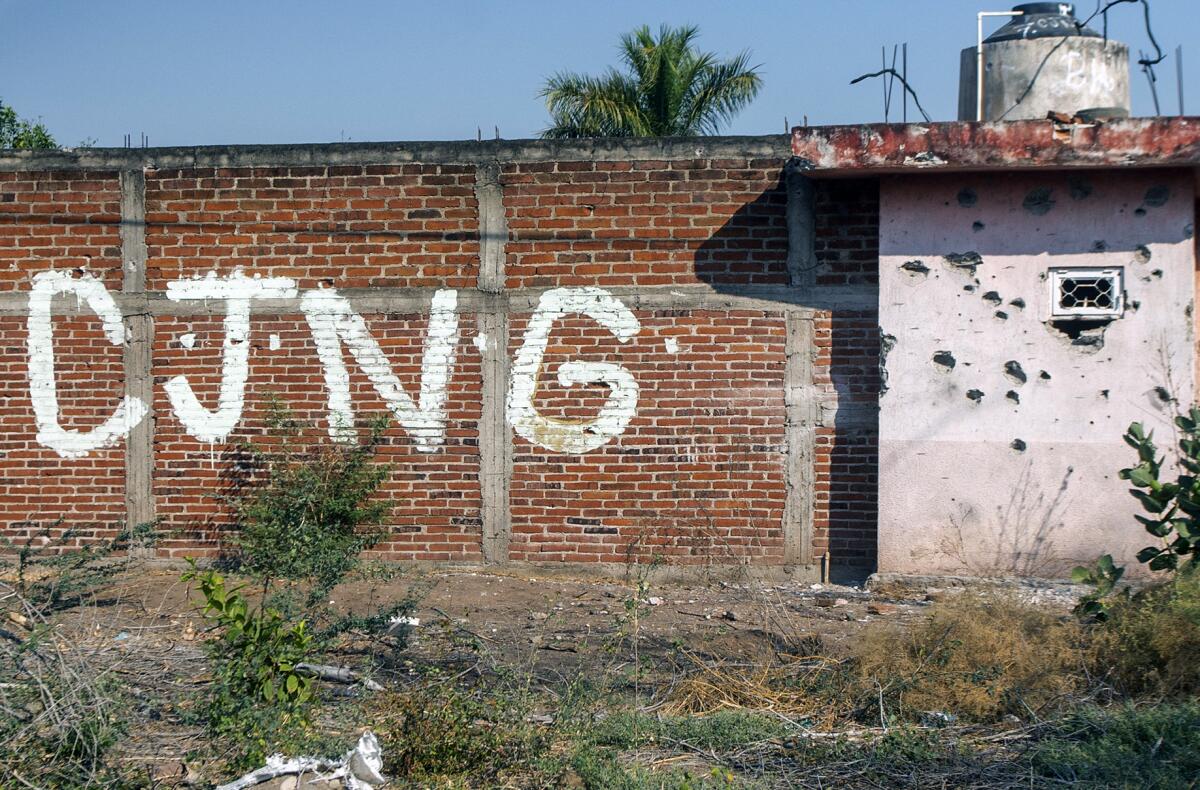
A bullet-riddled wall bears the initials of the Jalisco New Generation Cartel criminal group at the entrance to the community of Aguililla, Michoacan state, Mexico, April 23, 2021.
(Enrique Castro / AFP via Getty Images)
The U.S. Drug Enforcement Administration, which has said the CJNG “has a presence in dozens of countries around the world and in all 50 U.S. states,” is offering a $10 million reward for the capture of Nemesio Rubén Oseguera Cervantes, 58, “El Mencho.”
As for Menchito, Eduardo Balarezo, a lawyer who worked on El Chapo's defense team and has been following recent cases, said lawyers can only do what they can if a client insists on a trial when cooperators are lined up to testify.
“You can tell them what you think and give them your best advice, but sometimes they don’t listen to you and that creates a problem,” he said.
“They’re basically going to judge their father through him,” Balarezo said. “And he’s going to come out looking very bad. I don’t think they’re going to fare any better than El Chapo, frankly.”

